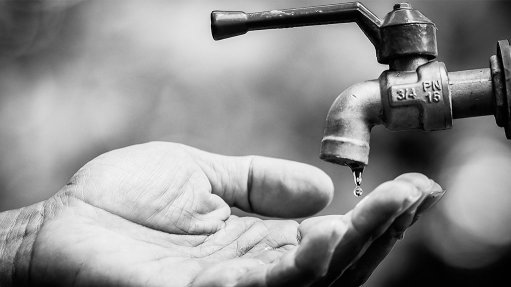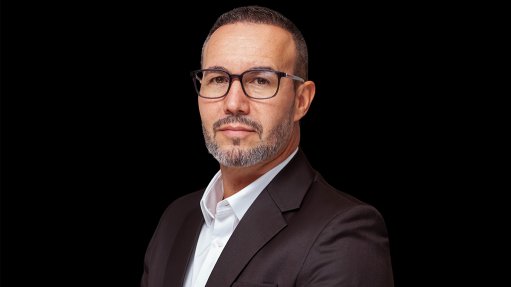Be careful what you wish for . . .
In this opinion piece, Africa Risk Consulting’s Tara O’Connor and Raphael Korber-Hoffman review recent security developments across the African continent
Two events pointing to a significant shift in pan-African security policy – and notably the battle against international Islamist extremist fighters – are likely to have a profound effect on the security and operating environment for mining and remote-site management companies. First, Mozambique’s President Filipe Nyusi has confirmed that Rwandan troops will support Mozambique’s fight against terror attacks in the gas-rich but poor northern province of Cabo Delgado – while prevaricating over signing an agreement to allow Southern African Development Community troops in. Secondly, France’s President Emmanuel Macron announced early this month that France would reduce its troops in West Africa from 5 000 to between 2 500 and 3 000.
The withdrawal of French troops marks a significant shift in a post-colonial policy that has been in place for more than 60 years. France tied its former colonies through three treaties: one that created a common currency zone, another that governed a mutually supportive ‘francophone’ foreign policy and a third establishing a regional French military presence. France has routinely intervened to prop up pro-France leaders, to the despair of an increasingly anti-French populace across West Africa. Macron has drawn a similar conclusion to that of US President Joe Biden regarding involvement in Afghanistan – a strong Western military presence provides cover for governments’ poor performance and risks Western involvement in “infinite wars”.
Although West Africa’s highly vocal youth will celebrate the withdrawal of French troops as the beginning of true independence, it leaves a security vacuum and creates uncertainty. French troop numbers in Chad, Mali, Burkina Faso and Niger have increased over the past eight years. French forces initially defeated Islamist fighters in Mali but, since then, violence has spread across the Sahel, intensifying consternation among Sahelian citizens who question the value of a French army when attacks increase in frequency and the population remains unprotected, leading to accusations that France only protects its business interests. From France’s perspective, most of the G5 Sahel countries – Burkina Faso, Chad, Mali, Mauritania and Niger – have failed to play their part. Chad and its military are the exception. Mali’s military response has been underwhelming; a coup in Mali in May overturned the elected government, raising the spectre of a return to military rule in Bamako and prompting France to suspend military activity and rethink. The three French military bases in Mali will be the first to close in 2022.
Despite what seems like French pique, Africa Risk Consulting’s francophone analyst, Leonard Mbulle-Nziege, says that, while the public withdrawal is overdue, the security imperative remains, and this pullback is characteristic of the French relationship: Françafrique never goes away; it just evolves. Certainly, France has committed to continue providing special forces operations and will continue regional cooperation. However, the withdrawal pushes the region’s governments and armed forces into the front line, introducing a sink-or-swim approach to nation-building.
The vacuum is likely to lead to a short-term spike in unchecked jihadist activity and see new security and military relationships emerge. The countries most vulnerable to attack and short-term political instability are Burkina Faso, Niger and Mali. Burkina Faso has borne the brunt of surging violence from groups linked to al-Qaeda and ISIS. Most recently, on June 4, gunmen massacred 132 people, including children, in the worst killing since the insurgency, which has claimed 1 500 lives and displaced 1.5-million people, began six years ago.
But the new frontier for the Islamist insurgency looks set to be Côte d’Ivoire as Sahelian terror groups move south towards the Gulf of Guinea. On June 8, an explosive device in north-eastern Côte d’Ivoire killed three soldiers and injured eight. Three soldiers died following attacks on army positions in March, and 14 people were killed in an attack in June 2020. Ivorian security officials believe these attacks emanate from groups in Burkina Faso that are moving into Côte d’Ivoire’s north, where poverty and disaffection facilitate their operation.
That said, West Africa’s military has a good chance to meet the challenge. Since 9/11, the US, France and the European Union have developed strong training relationships with key countries in sub-Saharan Africa, notably Morocco, Uganda, Kenya, Burundi, Nigeria and Senegal. Regional armies have greatly increased their capacity and invested in training capacity. In 2017, Côte d’Ivoire inaugurated an international academy to fight terrorism. Macron has invited South Africa’s President Cyril Ramaphosa to provide forces for counterterrorism in West Africa, although that request may fall on deaf ears as Ramaphosa deploys troops to restore order to South Africa’s streets in the wake of mass looting in KwaZulu-Natal and Gauteng.
New security cooperation and military relationships are already emerging. After the Central African Republic (CAR) turned to Russia for support once too often, France cut budgetary support and military aid. Chad’s new leader, Mahamat Idriss Déby – France’s main ally in the region – accuses Russia of being behind the incursion of CAR soldiers into Chad and supporting Chadian and Sudanese militiamen in next-door Libya. Chad will play a leading role in the Sahel and maintain a battalion in Niger as part of the G5 Sahel joint force.
Rwanda’s deployment of a 1 000-strong force to Cabo Delgado is as new a departure as France’s withdrawal from West Africa. Rwanda’s ambitions to be seen as the regional military power are clear. But what is that mission and where will it end? Terror groups are on a growth path across North, West, Central East and Southern Africa. Recruitment is easy. A recent United Nations report showed that the main reason for terrorist group recruitment is the promise of a job and a wage rather than ideological motivations. Jihadists fund their wage bill by exploiting gold mines and smuggling gold across the continent. A Reuters investigation showed jihadists control an estimated $2-billion informal gold trade from Burkina Faso, Mali and Niger. Like most of Africa’s illegal and smuggled gold, it finds its way to Dubai for refining, before making it into the world’s jewellery markets. The solution to Islamist extremist terrorism is clearly not a military one.
Article Enquiry
Email Article
Save Article
Feedback
To advertise email advertising@creamermedia.co.za or click here
Announcements
What's On
Subscribe to improve your user experience...
Option 1 (equivalent of R125 a month):
Receive a weekly copy of Creamer Media's Engineering News & Mining Weekly magazine
(print copy for those in South Africa and e-magazine for those outside of South Africa)
Receive daily email newsletters
Access to full search results
Access archive of magazine back copies
Access to Projects in Progress
Access to ONE Research Report of your choice in PDF format
Option 2 (equivalent of R375 a month):
All benefits from Option 1
PLUS
Access to Creamer Media's Research Channel Africa for ALL Research Reports, in PDF format, on various industrial and mining sectors
including Electricity; Water; Energy Transition; Hydrogen; Roads, Rail and Ports; Coal; Gold; Platinum; Battery Metals; etc.
Already a subscriber?
Forgotten your password?
Receive weekly copy of Creamer Media's Engineering News & Mining Weekly magazine (print copy for those in South Africa and e-magazine for those outside of South Africa)
➕
Recieve daily email newsletters
➕
Access to full search results
➕
Access archive of magazine back copies
➕
Access to Projects in Progress
➕
Access to ONE Research Report of your choice in PDF format
RESEARCH CHANNEL AFRICA
R4500 (equivalent of R375 a month)
SUBSCRIBEAll benefits from Option 1
➕
Access to Creamer Media's Research Channel Africa for ALL Research Reports on various industrial and mining sectors, in PDF format, including on:
Electricity
➕
Water
➕
Energy Transition
➕
Hydrogen
➕
Roads, Rail and Ports
➕
Coal
➕
Gold
➕
Platinum
➕
Battery Metals
➕
etc.
Receive all benefits from Option 1 or Option 2 delivered to numerous people at your company
➕
Multiple User names and Passwords for simultaneous log-ins
➕
Intranet integration access to all in your organisation


















